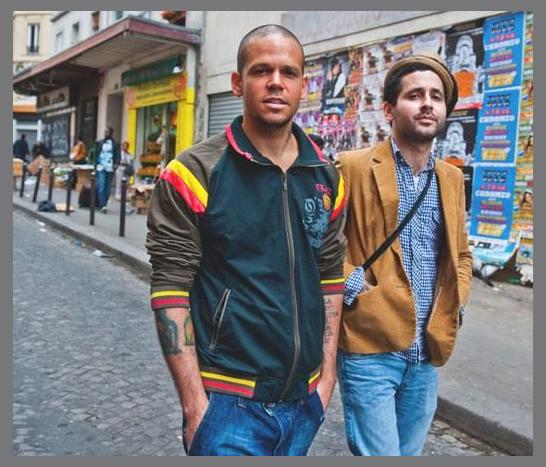 Calle 13
Calle 13
Calle 13: The Latin American Music Revolutionaries
Bursting onto the music scene in the mid-2000s, Calle 13 ignited a musical revolution that reverberated throughout Latin America and beyond. The Puerto Rican duo, composed of brothers René Pérez Joglar (Residente) and Eduardo Cabra Martínez (Visitante), defied boundaries with their eclectic blend of hip-hop, salsa, reggae, and indigenous rhythms.
Early Challenges and Controversies
Calle 13's journey was not without its trials. Their outspoken lyrics, which touched on social and political issues, often drew controversy. Their song "Atrévete-te-te" sparked outrage in the United States for its criticism of American imperialism, while "Tango del Pecado" ruffled feathers in the Catholic Church for its critique of religious hypocrisy.
Discographic Success
Despite the challenges, Calle 13's music resonated deeply with audiences. Their albums, including "Calle 13" (2005), "Residente o Visitante" (2007), and "Entren Los Que Quieran" (2010), garnered critical acclaim and commercial success. The duo's innovative sound earned them multiple Latin Grammy Awards, including Album of the Year for "Calle 13" and Song of the Year for "No Hay Nadie Como Tú."
International Collaboration and Recognition
Calle 13's impact extended far beyond Puerto Rico. They collaborated with international artists such as Tom Waits, Gogol Bordello, and Damian Marley, bridging musical genres and cultures. Their song "Latinoamérica" (ft. Totó La Momposina, Susana Baca, and Maria Rita) became a poignant anthem of Latin American unity and pride.
Members and Legacy
Residente and Visitante brought their unique talents to Calle 13. Residente, known for his incisive lyrics, often addressed themes of social injustice and cultural identity. Visitante's musical prowess, particularly on the cuatro (a traditional Puerto Rican instrument), infused their songs with a vibrant and soulful sound.
Calle 13's legacy continues to inspire artists and activists alike. Their music serves as a testament to the power of art to challenge societal norms and foster a sense of belonging among marginalized communities. The duo's unwavering commitment to their principles and their dedication to using music as a tool for social change have left an enduring mark on the Latin American cultural landscape.
Bursting onto the music scene in the mid-2000s, Calle 13 ignited a musical revolution that reverberated throughout Latin America and beyond. The Puerto Rican duo, composed of brothers René Pérez Joglar (Residente) and Eduardo Cabra Martínez (Visitante), defied boundaries with their eclectic blend of hip-hop, salsa, reggae, and indigenous rhythms.
Early Challenges and Controversies
Calle 13's journey was not without its trials. Their outspoken lyrics, which touched on social and political issues, often drew controversy. Their song "Atrévete-te-te" sparked outrage in the United States for its criticism of American imperialism, while "Tango del Pecado" ruffled feathers in the Catholic Church for its critique of religious hypocrisy.
Discographic Success
Despite the challenges, Calle 13's music resonated deeply with audiences. Their albums, including "Calle 13" (2005), "Residente o Visitante" (2007), and "Entren Los Que Quieran" (2010), garnered critical acclaim and commercial success. The duo's innovative sound earned them multiple Latin Grammy Awards, including Album of the Year for "Calle 13" and Song of the Year for "No Hay Nadie Como Tú."
International Collaboration and Recognition
Calle 13's impact extended far beyond Puerto Rico. They collaborated with international artists such as Tom Waits, Gogol Bordello, and Damian Marley, bridging musical genres and cultures. Their song "Latinoamérica" (ft. Totó La Momposina, Susana Baca, and Maria Rita) became a poignant anthem of Latin American unity and pride.
Members and Legacy
Residente and Visitante brought their unique talents to Calle 13. Residente, known for his incisive lyrics, often addressed themes of social injustice and cultural identity. Visitante's musical prowess, particularly on the cuatro (a traditional Puerto Rican instrument), infused their songs with a vibrant and soulful sound.
Calle 13's legacy continues to inspire artists and activists alike. Their music serves as a testament to the power of art to challenge societal norms and foster a sense of belonging among marginalized communities. The duo's unwavering commitment to their principles and their dedication to using music as a tool for social change have left an enduring mark on the Latin American cultural landscape.